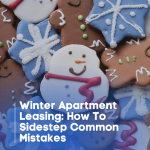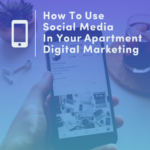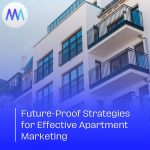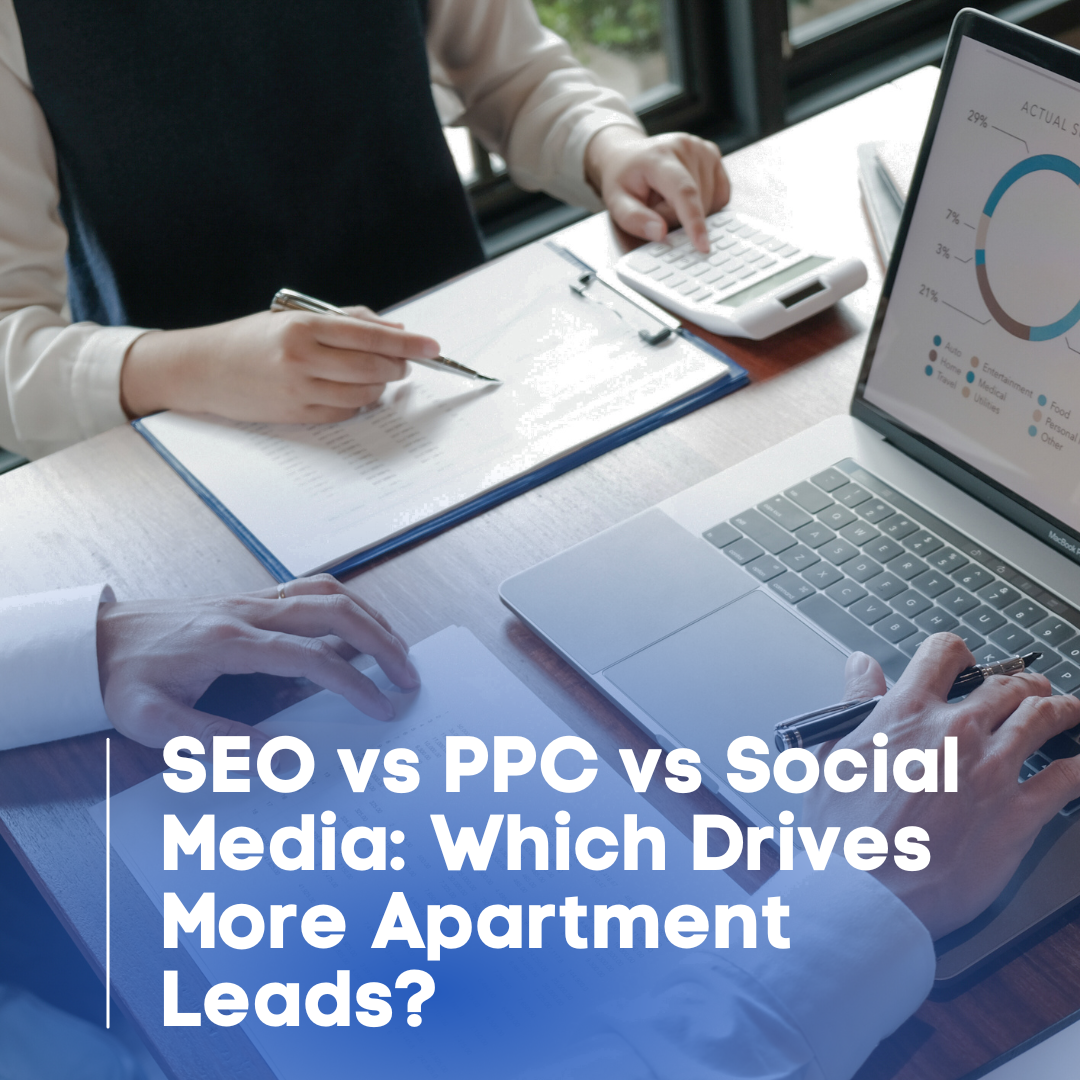
Generating apartment leads is crucial for property managers and marketers to fill vacancies quickly. Three key digital marketing channels are Search Engine Optimization (SEO), Pay-Per-Click (PPC) advertising, and social media marketing. Each has its own strengths for attracting potential tenants.
In this article, we will explore how SEO, PPC, and social media help generate apartment leads by explaining each service in detail. We’ll examine case studies and analyze return on investment (ROI) for a clear comparison. By assessing benefits, costs, conversion rates, and lead quality, you’ll understand which channel aligns best with your marketing goals.
Our goal is to help you make an informed decision by illustrating the short-term and long-term ROI of each marketing strategy. Whether you’re looking for quick results or trying to build a lasting lead generation system, this comparison, along with our detailed explanations of each service, will guide you to the best approach for your apartment marketing.
What is SEO
Search Engine Optimization (SEO) is an important strategy for increasing your apartment website’s visibility on search engines like Google. SEO means optimizing your website to rank higher in unpaid organic search results. For apartment marketers, this helps more renters find your property when they search online, boosting traffic and inquiries.
Key Features and Benefits of SEO:
Research shows that over 90% of clicks happen on the first page of Google search results. Getting top placement with good SEO strategies is key to increasing visibility and generating leads in online marketing. High-ranking pages capture organic traffic and build trust and authority, giving businesses an advantage.
- Long-term Growth: SEO delivers long-term traffic. Unlike paid ads that stop bringing traffic when the budget runs out, an optimized site keeps attracting visitors. As your domain gains authority with quality backlinks, SEO becomes more effective over time.
- Cost-effective: SEO needs an upfront investment in time and resources, but it brings free traffic after your site is optimized. This can lead to big savings compared to ongoing PPC campaigns.
- Trust and Credibility: People trust websites that show up in top search results. High rankings drive traffic and build trust. Google’s ranking system looks at things like content quality, mobile-friendliness, and links pointing to the website, all of which help build credibility.
- Local SEO: Local SEO is key for apartment marketers since most housing searches are location-based. Optimizing for location-based keywords (like “apartments near [city or landmark]”) and claiming your Google Business Profile can improve visibility in local searches and Google Maps. Local SEO strategies helped our clients increase lease applications by focusing on hyper-local keywords like “pet-friendly apartments near downtown [City].
What SEO Companies Do:
To improve your apartment listings, specialized SEO companies like Market Apartments use a multi-step approach to attract renters and turn visitors into leads. Marketers use technical know-how and local strategies to increase your online visibility.
Key SEO Strategies For Apartments
- In-depth Website Audits:SEO experts start by doing a full audit to find problems in your site’s technical setup, user experience (UX), and mobile-friendliness. These audits also check Core Web Vitals like page speed, visual stability, and interactivity, all important ranking factors in Google’s system.
- Keyword Research: SEOs find both broad search terms like “apartments for rent” and long-tail keywords like “luxury pet-friendly apartments in [City]” to attract more qualified leads.
- On-Page Optimization: This includes improving every page element, from content and meta tags to images and internal links, making sure they align with high-value keywords and meet the user’s intent.
- Link-Building Strategies: High-quality backlinks from relevant sites are important for building domain authority. SEO companies often work with real estate blogs, news outlets, and regional directories to get these valuable links.
- Advanced Techniques: Advanced SEO techniques like optimizing long-tail keywords, improving user experience (UX), and using rich snippets.
Local SEO:
- Google Business Profile Setup: SEO companies improve your Google Business Profile to make sure your property’s name, address, phone number (NAP), and hours are correct. They also use local keywords to help your property rank for hyper-local searches. In areas with high competition, optimizing profiles for unique amenities can help make your listings stand out.
- Gathering Positive Reviews: We encourage tenants to leave positive reviews on Google, Yelp, and apartment-specific platforms like ApartmentRatings.com, as these reviews can greatly influence local SEO rankings. Properties with many positive reviews are more likely to appear in the Google Local Pack, a prime spot in local search results.
Common SEO Questions from Apartment Leasing Managers
How long does it take for SEO to generate leads for apartments?SEO typically takes 3 to 6 months to start generating noticeable leads, as it requires time to establish authority and improve rankings. However, local SEO efforts, such as optimizing Google Business Profiles and soliciting reviews, can yield faster results, especially for hyper-local apartment searches.
How does local SEO help apartment leasing managers attract leads?Local SEO makes sure your apartment complex shows up in local searches like “apartments near [city],” helping more people in the area find your property. By optimizing your Google Business Profile and getting reviews, you can rank higher on Google Maps and local searches, driving more traffic and inquiries.
What are the benefits of SEO for long-term lead generation?SEO brings long-term organic traffic, reducing the need for paid ads and consistently attracting new renters as your site builds authority. Because search engines prioritize quality content and trusted sources, good SEO can build brand credibility and keep lead volume high with little ongoing investment.
PPC (Pay-Per-Click Advertising)
When you need apartment leads quickly, Pay-Per-Click (PPC) advertising is an effective strategy. PPC involves paying for ads to appear prominently on search engines or social media platforms, ensuring your property gains immediate visibility and reaches potential renters right when your campaign starts.
What is PPC and How It Works
PPC is a digital marketing model where you pay each time someone clicks on your ad. Unlike organic methods like SEO, PPC provides instant exposure by bidding on keywords or targeting specific demographics. Common PPC platforms include:
- Google Ads: Your ads appear at the top of search results when someone searches for keywords like “2-bedroom apartments downtown.” Google uses auction-based bidding to determine ad placements.
- To attract higher-quality tenant leads, effective campaigns often use gated virtual tours or floor plan downloads that require email registration. This helps turn casual browsers into qualified prospects.
- Facebook Ads: These ads enable you to target users based on their behaviors, demographics, and interests, such as individuals searching for real estate or relocating to your area.
- Instagram Ads: Ideal for showcasing luxury apartments with eye-catching images or videos, these ads are placed in users’ feeds and stories.
Key Features and Benefits of PPC
- Instant Visibility and Traffic:
- As soon as your campaign goes live, your ads start showing, bringing immediate traffic to your listings. This is crucial for filling vacancies quickly, especially in competitive markets.
- A vacant apartment with high-resolution images and a virtual tour can receive up to 87% more inquiries, based on Zillow rental data.
- Precise Targeting:
- Demographics: Target renters by age, income, or life events (e.g., newly engaged individuals seeking a new home).
- Keywords: Use specific search phrases like “luxury apartments in [city]” or “pet-friendly lofts.”
- Locations: Focus on zip codes, urban areas, or regions with high relocation activity to reach the most relevant audience.
- Flexible Budgets:
- PPC allows you to set and adjust your daily or total budget in real-time. Whether you have a small budget or can allocate more, you can scale your spending based on ad performance, increasing investment in successful ads and reducing it for less effective ones.
- Fair Housing Considerations: Google Ads are effective for renters who are actively searching, while Facebook Ads are more suitable for reaching individuals based on their lifestyle interests and demographics. If you’re targeting by income or life stage, social media gives you more flexibility, but you need to use it carefully. To follow Fair Housing laws and stay compliant, avoid targeting by race, religion, or other protected classes. Instead, target by location or use interest categories such as “moving soon.” Google Local Services Ads (LSAs) are another option for high-quality leads. They use a pay-per-lead model and often attract more serious prospects than display ads.
How Companies Maximize PPC Campaigns
- Comprehensive Keyword Research:
- Identifying the right keywords is essential for reaching the right audience. Companies research optimal search terms for your property, such as “affordable studios with pet-friendly policies” or “luxury apartments near downtown,” ensuring your ads attract qualified leads.
- Cross-Platform Campaigns:
- Managing ad campaigns across multiple platforms, such as Google Ads, Facebook, and Instagram, enables businesses to cover a range of touchpoints. Each platform is tailored to match user behavior, enhancing overall lead generation for apartments.
- Constant Optimization:
- Successful PPC campaigns require ongoing monitoring and adjustments. Companies track key metrics like cost-per-click (CPC) and conversion rates, refining bids, keywords, and ad content to maximize return on investment (ROI).
Common PPC Questions We Receive
- How much does PPC cost for apartment complexes?The cost of PPC for apartment complexes varies based on factors like location, competition, and keyword selection, typically ranging from $1 to $5 per click. Monthly budgets can range from $500 to $5,000, allowing property managers to target and generate leads based on their specific needs effectively.
- How do you calculate the ROI of PPC campaigns for apartment rentals?To calculate PPC ROI, subtract the total campaign cost from the revenue generated by the leads, then divide by the campaign cost and multiply by 100 to get a percentage. For apartment rentals, this involves tracking the number of signed leases attributable to PPC ads and assigning a monetary value to each lease to determine the overall return.
- What is the typical conversion rate for apartment leads from PPC campaigns? Conversion rates for apartment leads from PPC campaigns typically range between 5% and 10%, depending on the effectiveness of ad targeting and landing page optimization. High-performing campaigns with well-crafted ads and relevant landing pages can achieve conversion rates upwards of 15%, enhancing lead quality and overall campaign success.
Partnering with Experts
At Market Apartments, we don’t just set up PPC campaigns; we use a data-driven approach to ensure the best results. Our expertise includes:
- Creating and Managing Multi-Platform Campaigns: A cross-channel strategy covers multiple touchpoints, from search-driven traffic on Google Ads to interest-based discovery on Facebook and Instagram. Each platform is optimized to play a unique role in generating high-quality leads for your apartments.
- Geofencing technology is becoming a valuable tool for apartment lead generation, targeting mobile users in specific areas, such as nearby campuses or corporate hubs.
- Ongoing Optimization and Reporting: We continuously monitor campaign performance, making real-time adjustments to bids, keywords, and ad content to maximize ROI. Detailed reports keep you informed about your campaign’s success and areas for improvement.
Social Media Marketing
Social media platforms like Facebook, Instagram, and TikTok offer apartment managers a mix of visual storytelling and community interaction, making them key for building awareness and engagement. Unlike PPC and SEO, social media offers both free and paid ways to show your property’s personality and connect with potential renters.
Key Features and Benefits of Social Media for Apartments:
- Visual Appeal: Social media is great for sharing eye-catching images and videos of apartment complexes, amenities, and neighborhood highlights. Instagram Stories and TikTok reels can offer quick, immersive virtual tours that grab attention fast.
- High Engagement: Through comments, likes, and messages, apartment marketers can connect with potential renters, answer questions, and build relationships. This back-and-forth communication makes social media a strong tool for gaining leads and trust.
- Targeted Ads: Platforms like Facebook offer detailed ad targeting, helping you reach specific groups like young professionals, families, or pet owners. Marketers can also retarget people who visited their website or engaged with earlier posts.
- Effective lead generation strategies for apartments often combine behavioral retargeting with seasonal promotions. This helps marketers reach people who viewed listings but didn’t take action.
- When comparing Facebook Marketplace and Craigslist for rentals, studies show that Facebook listings often get faster responses and more mobile inquiries because of its built-in messaging and wider social reach.
What Social Media Companies Do:
- Tailored Content Strategies: Agencies develop targeted strategies for both free posts and paid ads to help apartment communities effectively reach their target audience. This includes posts that show unique features like pet-friendly amenities, co-working spaces, or nearby attractions.
- Content Creation: Professional social media management includes making high-quality visuals (photos, videos), writing engaging captions, and keeping brand messaging consistent.
- Metrics and Optimization: Tracking engagement like clicks, shares, and comments helps improve social media strategies quickly. By looking at these insights, companies can adjust targeting or content to connect better with potential renters.
- Community Engagement: Besides posting, good companies interact with followers by replying to comments, answering questions, and handling messages. This improves customer experience and increases your visibility in the platform’s algorithm.
Common Social Media Questions We Receive
Which social media platforms are most effective for apartment marketing? Facebook and Instagram are two of the best platforms for apartment marketing because of their large user bases and strong targeting tools. Pinterest and LinkedIn are also useful for reaching specific groups, like young professionals and people looking for upscale or corporate housing.
What type of content works best to engage potential renters on social media?Visually appealing content like high-quality photos, virtual tours, and video walkthroughs help engage potential renters by letting them explore the property online. Adding interactive posts like polls, resident testimonials, and community highlights builds a connection and trust with your audience.
How can social media campaigns be optimized for better lead generation? Optimize social media campaigns by using detailed targeting to reach the right audience and retargeting to re-engage users who interacted with your ads or website. Clear, strong calls-to-action and simple landing pages designed for conversions can also improve lead generation.
Comparison: Which Marketing Channel Drives the Most Apartment Leads?
Choosing the best marketing channel for generating apartment leads depends on the strengths of SEO, PPC, and social media. Each has its advantages, but which one gives the most value in terms of lead volume and quality? Here’s a breakdown:
SEO: Long-Term, Consistent Leads
- Lead Volume: SEO generates organic traffic and leads over time. Once your apartment website ranks well, you get a steady flow of high-quality traffic without needing ongoing investment.
- Lead Quality: These leads are often more qualified since renters are actively searching for specific types of apartments and are further along in their decision-making process.
PPC: Fast, Targeted Results
- Lead Volume: PPC delivers leads quickly. Paying for ads on search engines or social media gives you instant visibility.
- Lead Quality: PPC can bring in lots of traffic fast, but it may include both qualified and unqualified leads. More specific targeting and ad copy improve lead quality, but this can also raise costs.
Social Media: Boosts Awareness, but Paid Ads are Key
- Lead Volume: Social media is great for building brand awareness, but it usually doesn’t generate lots of leads without paid ads. Organic posts alone don’t often drive steady leads.
- Lead Quality: Paid social ads can produce leads, especially when targeting specific groups. However, social media leads often need more nurturing compared to SEO and PPC leads, since users may not be actively looking to rent when they see your ads.
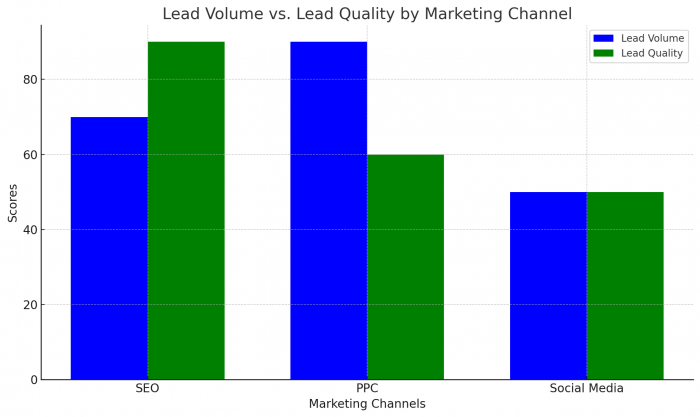
This summary shows how each marketing channel performs under different budgets, with expected ROI listed for three typical spending levels.
| Marketing Objective | Best Channel | Why It Wins |
|---|---|---|
| Fill Vacancies ASAP | PPC Advertising | Provides immediate visibility and lead flow through targeted search and display ads. |
| Reduce Long-Term Marketing Costs | SEO | Drives consistent organic traffic without paying per click; ROI increases over time. |
| Build Brand Awareness | Social Media | Creates visual engagement and community interaction across multiple touchpoints. |
| Target Niche Demographics | Facebook & Instagram Ads | Advanced targeting by age, interests, and life stage allows hyper-specific lead targeting. |
| Rank for Local Searches | Local SEO | Optimizes presence on Google Maps and local queries like “apartments near [city/area].” |
Along with larger campaigns, you can improve your site by using built-in tools that support multifamily lead generation at little or no cost. Adding a floor plan comparison tool, interactive property maps, or pop-ups showing limited availability can encourage visitors to act quickly.
Seasonal promotions, such as “Schedule a Tour” banners with instant booking, can also increase rental lead conversions without increasing your budget. These tools help you attract more attention and strengthen your multifamily lead generation strategy directly through your website.
To help address low apartment occupancy, midweek move-in incentives and waived application fees help attract renters during slower leasing periods.
Our Case Studies
Stretching every dollar in apartment marketing is vital, especially with a limited budget. At Market Apartments, we’ve carefully analyzed the performance of SEO, PPC, and social media when allocating $1,000 per channel. Our findings provide valuable insights into how each platform performs in lead generation without incurring significant costs. Here’s a closer look:
SEO
- Budget: $1,000
- Strategy: Basic keyword research, content optimization, and Google Business Profile updates.
- Results: 25% organic traffic boost, generating 22 leads at approximately $45.45 per lead.
Why It Works: SEO builds long-term website traffic and credibility, offering high-quality leads even with a modest investment. Its effects grow over time, making it a cost-effective approach for sustained visibility.
PPC Advertising
- Budget: $1,000
- Strategy: Targeted Google Ads with geo-specific focus and engaging ad copy.
- Results: 280 clicks, 14 leads, with a cost per lead of $71.43.
Why It Works: PPC offers quick visibility, but a small budget limits its ability to generate high volumes of leads. Careful targeting and ad optimization are essential for improving cost efficiency.
Social Media Marketing
- Budget: $1,000
- Strategy: Active engagement on Facebook and Instagram with targeted boosted posts.
- Results: 12 leads at a cost of $83.33 per lead, while boosting community engagement and follower growth.
Why It Works: Social media excels at brand building and community interaction, though lead generation tends to be slower. Its true value lies in long-term engagement and fostering relationships with potential renters.
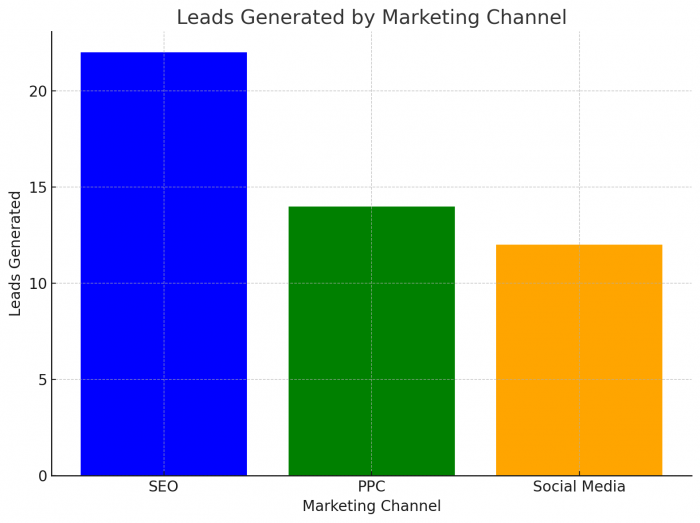
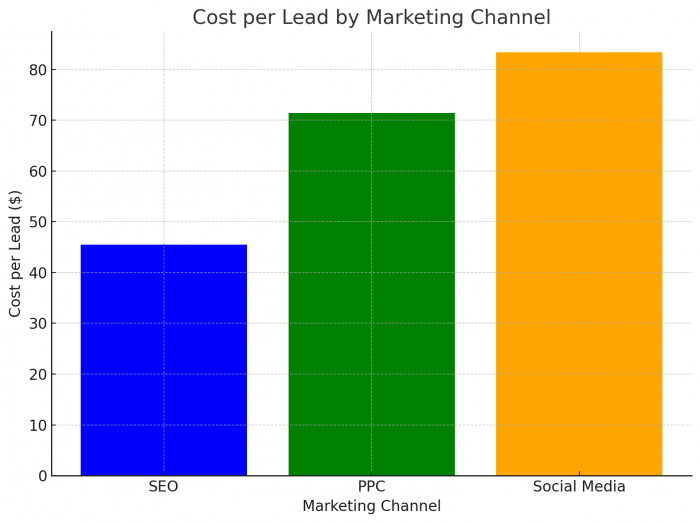
Cost-Effectiveness: Which Strategy Delivers the Best ROI?
When generating apartment leads, every dollar counts. Which marketing strategy gives you the most value for your money? Let’s explore the cost-effectiveness of SEO, PPC, and social media marketing to help you decide where to invest.
Cost Comparisons Across Channels
SEO: Long-Term Savings and Sustainable Growth
High ROI Over Time: SEO requires upfront costs, but the returns are ongoing. Once your site ranks well, you get consistent, organic traffic without continuous spending.
Lower Ongoing Costs: Unlike paid ads, SEO doesn’t need ongoing payments for each click or impression. Maintenance costs are minimal compared to the steady stream of leads it generates.
PPC: Fast Results with Higher Costs
Immediate Results: Need leads fast? PPC provides instant visibility on search engines and social media, driving traffic as soon as your campaign launches.
Potentially Expensive: Competitive keywords can raise costs, making PPC pricey, especially if you’re targeting high-demand areas.
Social Media: Flexible Budgeting
Variable Costs: Social media marketing costs change based on how much you use organic reach versus paid ads. You can start small and scale up as needed.
Balanced Approach: Combining free engagement with targeted ads lets you manage your budget while reaching a larger audience.
FAQs Related to Cost-Effectiveness
Which strategy is most cost-effective for smaller apartment communities?
Smaller communities often find SEO to be the best long-term option. With limited budgets, investing in SEO provides sustainable traffic and leads without the high ongoing costs of PPC. Local SEO tactics can help you efficiently target renters in your area.
What are the hidden costs of running PPC or social media campaigns?
PPC:
- Management Fees: Hiring experts or agencies to run your campaigns adds to the cost.
- Ad Fatigue: Regularly updating ad creatives to prevent audience burnout requires time and resources.
Social Media:
- Content Creation: High-quality visuals and posts need investment in photography, videography, and graphic design.
- Platform Fees: Boosting posts or running ads on social media platforms adds costs beyond your initial budget.
- If you’re on a tight budget, you can add small on-page tools like testimonial sliders, neighborhood highlights, or real-time unit counters. These tools help attract renters and convert website traffic into leasing leads at a lower cost. They’re easy to update and don’t require ad spending, which makes them a good fit for communities that want to grow rental leads without running paid ads.
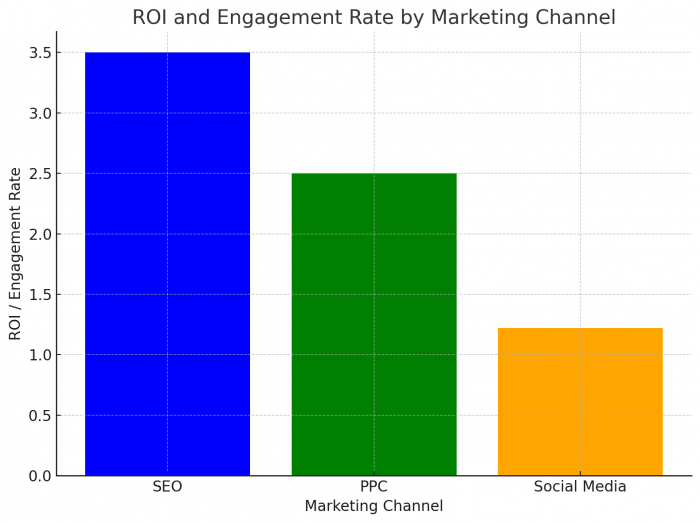
Building a Balanced Lead Generation Strategy
To create a successful lead generation strategy for your apartment community, you need to use the strengths of SEO, PPC, and social media while avoiding their limitations. Here’s how to combine them effectively:
Summary of Strengths and Weaknesses
SEO
Pros:
- Provides sustainable, long-term traffic
- Builds credibility and trust
- Cost-effective once the initial investment is made
Cons: - Takes time to show results
- Requires continuous optimization
PPC
Pros:
- Immediate visibility and traffic
- Targets audiences precisely
- Flexible budgeting and scaling
Cons: - Costs can add up quickly
- Needs regular management and updates
Social Media
Pros:
- High engagement and brand interaction
- Offers versatile content options (videos, stories, posts)
- Great for building community and loyalty
Cons: - Lead generation is slower without paid boosts
- Requires consistent content creation and interaction
Guidance for Apartment Communities
Apartment communities have different needs and goals. Here’s how to tailor your strategy based on those differences:
For New Developments:
Focus on SEO, PPC, and Social Media:
- PPC: Quickly build awareness and direct traffic to your leasing pages.
- SEO: Boost your online presence by optimizing your website to attract organic traffic.
- Social Media: Highlight the development’s features and engage renters with virtual tours and interactive posts.
For Established Communities:
Emphasize SEO and Social Media:
- SEO: Boost your online presence with optimized content to attract consistent organic traffic.
- Social Media: Keep engagement high and encourage referrals with resident testimonials and community highlights.
For High-Competition Areas:
Use All Three Channels:
- SEO: Target niche keywords and local SEO to stand out.
- PPC: Use competitive bidding on high-intent keywords to capture leads quickly.
- Social Media: Differentiate your brand with unique content and targeted search ads for specific audiences.
You don’t have to handle digital marketing on your own. Let Market Apartments help you design a lead generation strategy that fits your community’s needs and goals. Whether you need expert advice or hands-on management across SEO, PPC, and social media, our team is ready to boost your lead generation and keep you on trend with digital apartment marketing trends.
Contact Market Apartments today to learn how we can turn your digital marketing efforts into a steady stream of qualified leads!
Categorised in: Apartment Marketing
This post was written by Isabella Housel
Isabella Housel is a passionate and versatile professional writer with a deep love for words and a commitment to crafting compelling content that engages, informs, and inspires. With many years of experience in the industry, she has honed her skills across various genres, from creative storytelling to informative articles and technical documentation.



